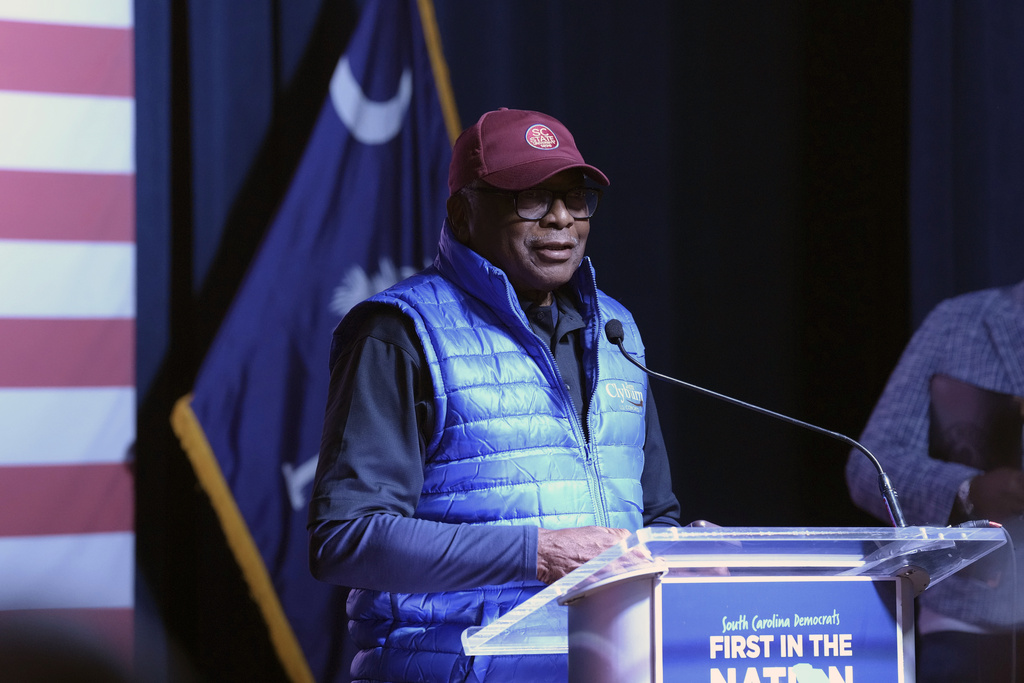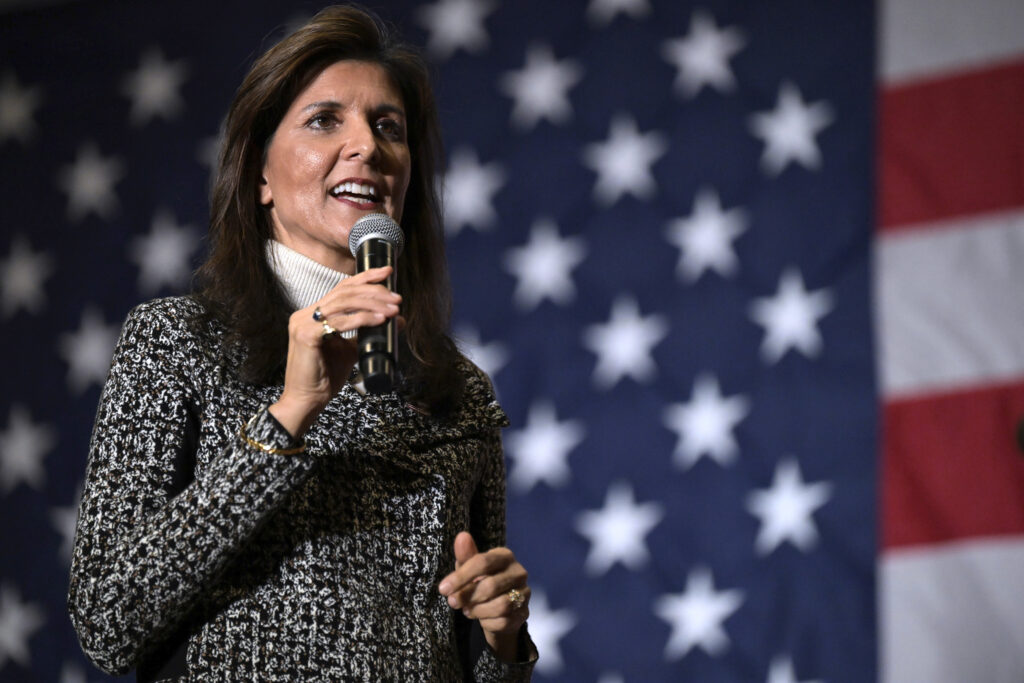
COLUMBIA, SOUTH CAROLINA — President Joe Biden may have had a landslide victory in South Carolina that put to rest lingering doubts about his march to the Democratic nomination, but concerns remain about excitement for November.
While black early voting numbers were strong, overall turnout on Saturday was abysmal at 4%, with even one of Biden’s top allies acknowledging he’ll have a hard time counting on the South for any pickup opportunities in the general election, where he’ll most likely face a rematch with former President Donald Trump.
Despite Democratic Party efforts to get voters to the polls to show enthusiasm for Biden and his choice to make South Carolina the kick-off state for his reelection bid, both total turnout and overall early voting numbers plummeted in South Carolina’s primary compared to 2020.

Just 131,286 South Carolinians took part in the Democratic primary, with 96% of those votes going to Biden, and just over 55,000 of those votes were cast ahead of Saturday. South Carolina had 3,226,353 registered voters heading into the primary, yielding an extremely low participation rate of just over 4%.
For comparison, the 2020 primary saw 16% of registered South Carolinians turn out, with Biden winning nearly 49% of all ballots cast. That year, Biden mounted a comeback in the Palmetto State when he beat Sen. Bernie Sanders (I-VT), businessman Tom Steyer, now-Transportation Secretary Pete Buttigieg, Sen. Elizabeth Warren (D-MA), and others on his way to win the nomination.
It’s all but certain that South Carolina will vote Republican in November, and Biden’s strong performance in the Palmetto State doesn’t necessarily predicate the establishment of a “new blue wall” in the South, according to Rep. Jim Clyburn (D-SC), a co-chairman of Biden’s reelection bid and a de facto leader for black voices across the region, and a host of other Biden surrogates.
Still, Biden’s campaign and the state Democratic Party effectively activated black voters in particular, easing some concerns about enthusiasm for the president’s reelection bid. Biden’s win saw the president secure 13% growth in black voter share of all early voting in the state.
Biden allies were quick to point to the growth in black voter share as a positive sign for the campaign’s grassroots efforts, but Clyburn, the keynote speaker at South Carolina Democrats’ primary night victory party on Saturday, said in an interview with the Washington Examiner that it’s too early to tell if these methods can produce results in other states across the South, including Georgia, North Carolina, and Florida.
“Well, I would hope that we will take a look. We haven’t had a chance to analyze, or at least I haven’t, so I don’t know exactly where these numbers are coming from,” Clyburn said when asked what Saturday’s results mean for Biden’s chances in the general election. “We’ve only seen the total numbers, and of course, as we’ve learned, winning the total doesn’t mean you win the Electoral College. And so just because we’re winning big all over the state. The question is, where are those votes coming from?”
“No, I don’t think we’re building a new blue wall,” he continued. “We’re just trying to be inclusive in the South. Democrats are trying to be competitive in the South.”

Party officials attribute a number of factors to 2024’s overall decline in participation.
First and foremost, 2024, while not technically uncontested, was an extremely “uncompetitive” contest, and the election lacked a real sense of urgency, said South Carolina Democratic Party Executive Director Jay Parmley.
Secondly, in 2020, the COVID-19 pandemic drove states to expand early voting and absentee voting windows. South Carolina allowed early voting for an entire month leading up to the primary, compared to just two weeks in 2024.
Furthermore, South Carolina operates on an open primary system, meaning that registered Democrats, Republicans, and non-affiliated voters may choose to cast ballots in either party’s primary but are restricted to one total primary vote.
Biden’s team has long viewed South Carolina as a case study for discounting narratives surrounding Biden’s age and a perceived slide in support among minority voters and voters under the age of 35. Democratic operatives have also openly targeted Southern swing states Georgia and North Carolina as gettable wins on Biden’s bid for another term in the White House, especially with a fully activated black voting bloc.

Christale Spain, the chairwoman of the South Carolina Democratic Party, voiced slightly more optimism than Clyburn about flipping Southern states blue in November.
Spain focused her campaign for her current position around the need to conduct “year-round voter engagement” in both urban and rural communities, a process party and Biden campaign officials credit with producing strong early voting numbers in South Carolina’s primary. She stressed to the Washington Examiner the need for groups in other Southern states to similarly ramp up their grassroots outreach efforts ahead of the general, but she also noted the importance down-ballot elections play in changing states’ overall political makeup.
“If we want to change this country for the better, Democrats have to start winning in places like South Carolina, and it takes investments,” she said in an interview. “It takes doing things like making South Carolina first, so that we can get the investment and resources that we need to win our down ballot races, to win our State House and Senate seats so that we can eventually change our governance and win our governor’s mansion.”
Meanwhile, former U.N. Ambassador Nikki Haley is making a last-ditch, monthlong effort to win her home state of South Carolina ahead of the GOP primary on Feb. 24, and a super PAC opposing Trump’s candidacy sent more than 200,000 texts to South Carolinians who voted in the 2020 Democratic primary, urging them to abstain from Saturday’s vote and instead support Haley in the Republican primary.

Spain said the counter-programming effort has not yet led party officials to consider pushing to close the primary and told the Washington Examiner that “South Carolinians know who Nikki Haley is.”
“Let me just say that. We’re not confused. We know exactly when she said she’s not a moderate; we already knew that because we know that she’s the mother of the MAGA movement before it had a name,” Spain stated.
CLICK HERE TO READ MORE FROM THE WASHINGTON EXAMINER
Clyburn lamented Haley for discounting the role slavery and racism had in shaping Southern politics.
“I remember when my dad could not vote and my mom, both college-educated, could not vote. I remember all that, and so what we’re trying to do is to get this region of the country beyond that,” he told the Washington Examiner. “These people who go on television, saying this has never been a racist country. They ought to be excommunicated for saying something like that. How can you read the Dred Scott decision — no black man has any rights that the white man must respect — and say that’s not racism? And that was the Supreme Court of the United States that said that. We can’t deny that. We’ve got to be adults enough to work to overcome that.”





